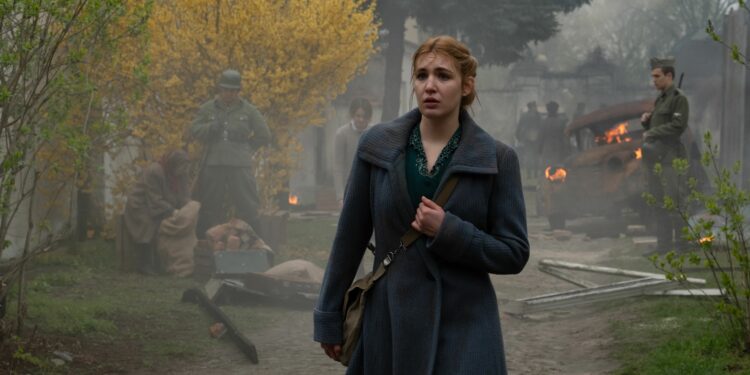From then on, her mother slowly began talking, but it was evident to Smith “how hard it was for her, especially that first time, and I stayed away from the subject.”
“It wasn’t until I went with her to a school — I was almost 20, [and] I took her to a school so she could talk to kids — that I not only heard her story but saw the saw amazing reaction … and I thought, ‘Man, this story is powerful.’”
Gut received several recognitions for the work she did to protect Jews during the Holocaust, including being honored as a Righteous Among the Nations by the Israeli Holocaust Commission. This title is given to non-Jews who risked their lives to help Jewish people during WWII. She also received a Medal of Honor in a ceremony at Jerusalem’s Yad Vashem Holocaust Memorial, and her story is part of a permanent exhibit in the United States Holocaust Memorial Museum in Washington, D.C., among other recognitions.
One that particularly meant a lot to Gut was the papal blessing she received in 1995 from Pope John Paul II for her sacrifice. Smith explained that her mother had a very painful experience when she went to confession, after enduring sexual abuse and being forced to have sexual relations with the German major.
Unable to confess to her usual priest one day, Gut went to a young priest who Smith said was “more anti-Semitic and told her she didn’t have a part in the Catholic Church, which broke her heart.”
“So [there was] this papal blessing where Pope John Paul II, the Polish pope, sent a delegation from the Vatican, and we had a ceremony in a Jewish synagogue in Irvine, California,” she said. “So the mixture was amazing, and it was just coming home for her. It meant a lot.”
Nélisse pointed out that Irena Gut’s life can inspire everyone.
“I think we as individuals think that we can’t really make a difference or that we’re too small to really have an impact, and I think that she’s the perfect example that — I mean, she obviously did heroic things — [but] by doing tiny things that seem so simple, it could be smiling to someone or helping them with a bag or complimenting them, it does have a ripple effect,” Nélisse said.
Smith added that she has heard from kids who were thinking about taking their lives by suicide, but one day someone sat with them at lunch and that changed their minds. She hopes that her mother’s story reminds people that “we are all able to do amazing things.”
“People will call my mom a hero or somebody who’s special, and she wouldn’t have liked that and I don’t either, because you label somebody that way and it gives them permission to do things that you can’t, [but] the bottom line is we are all able to do amazing things,” she said.
Credit: Source link




